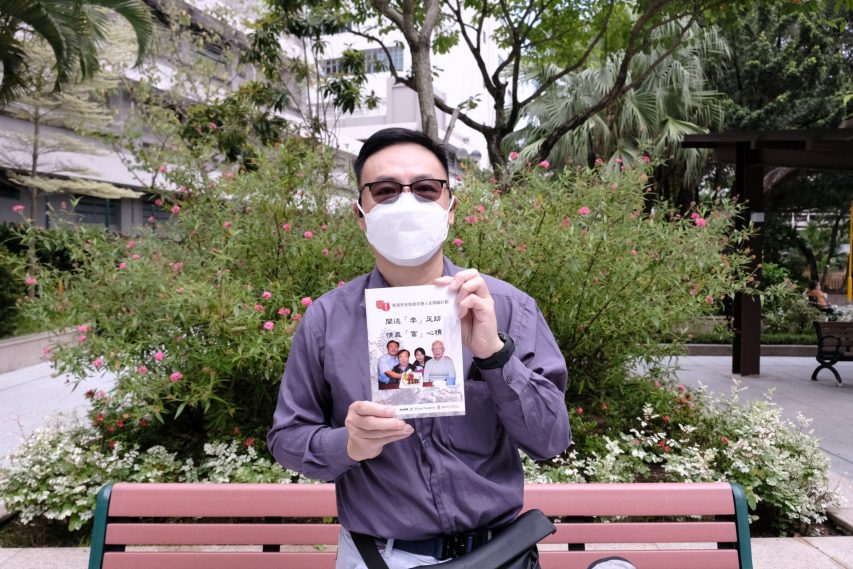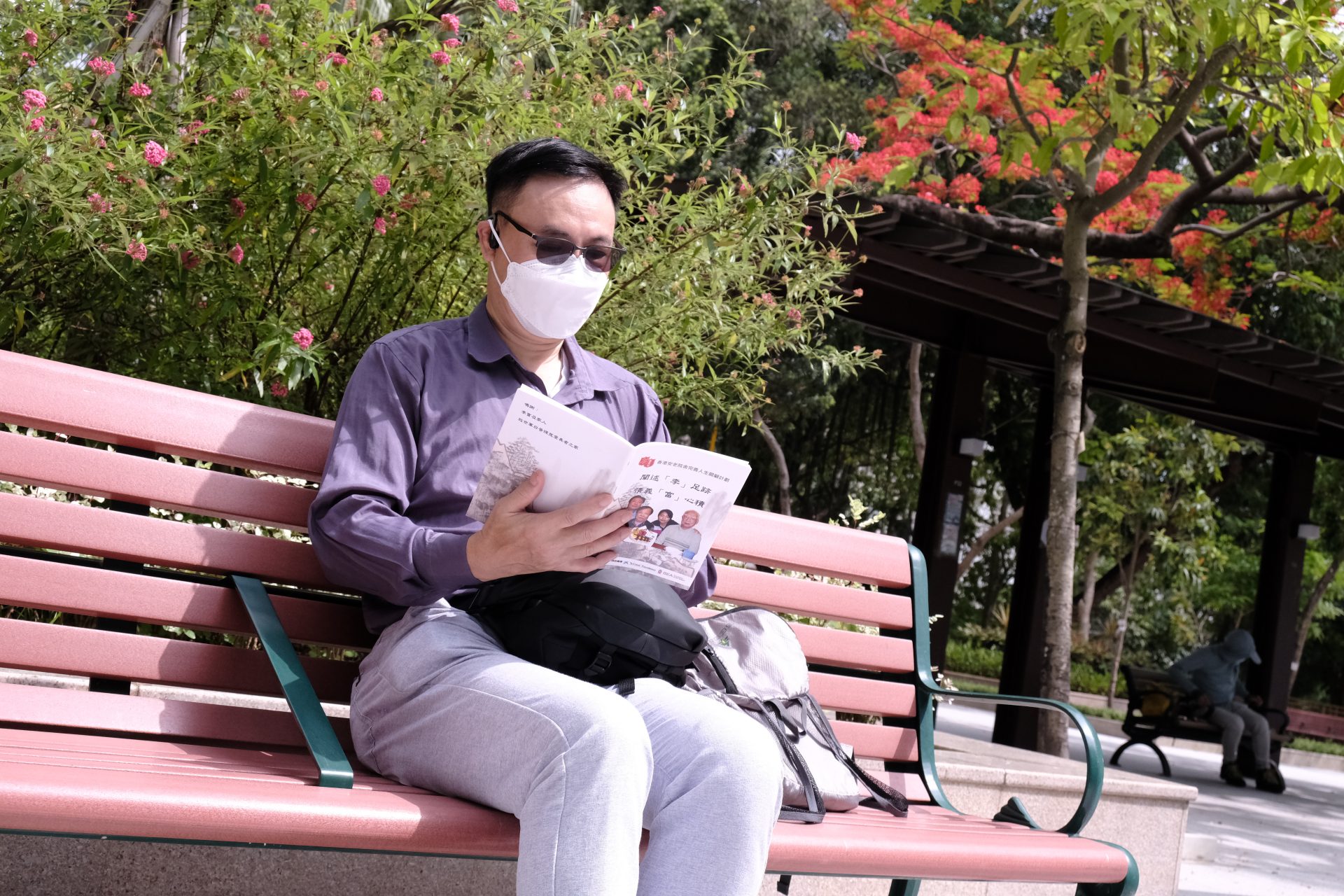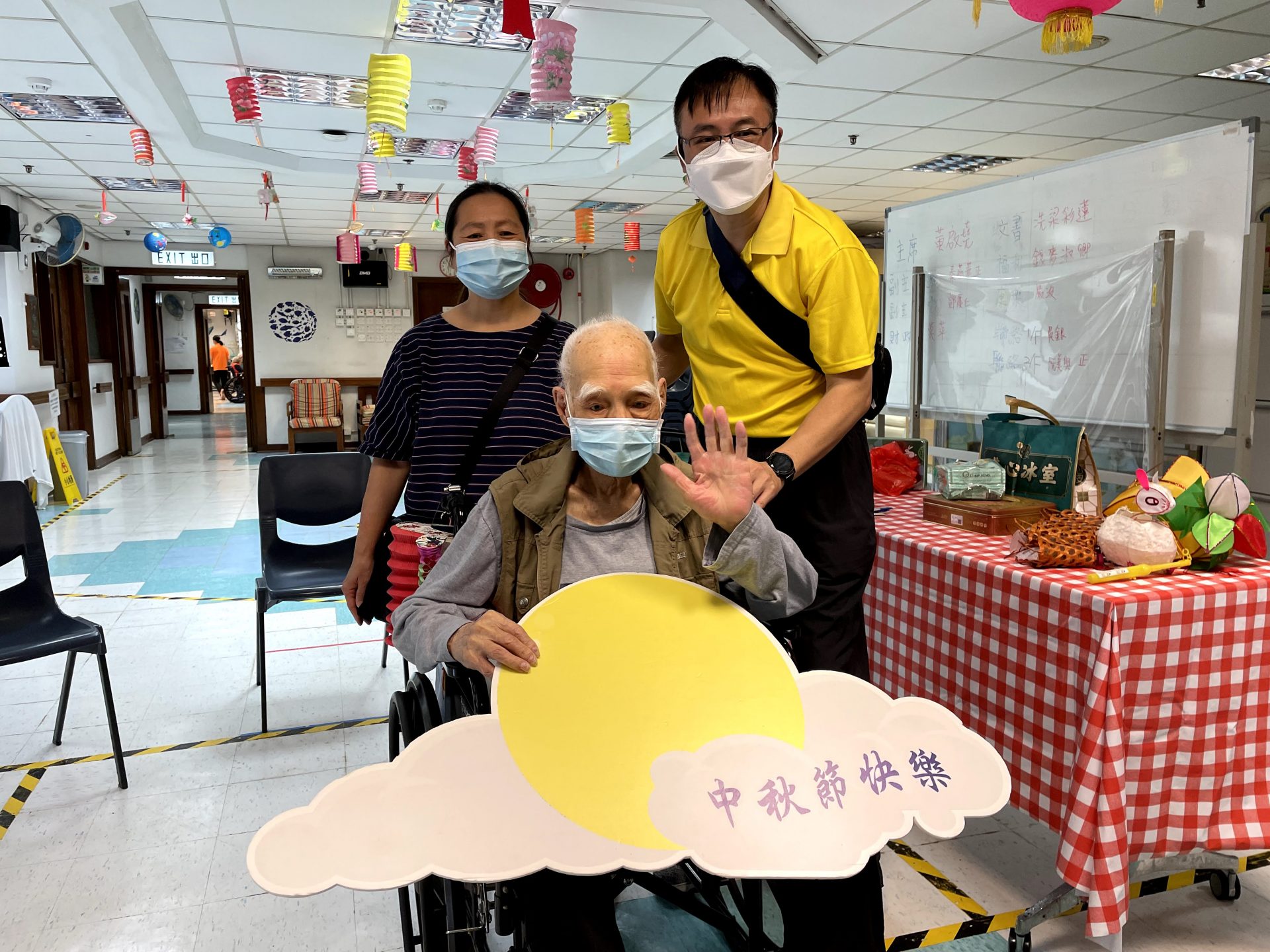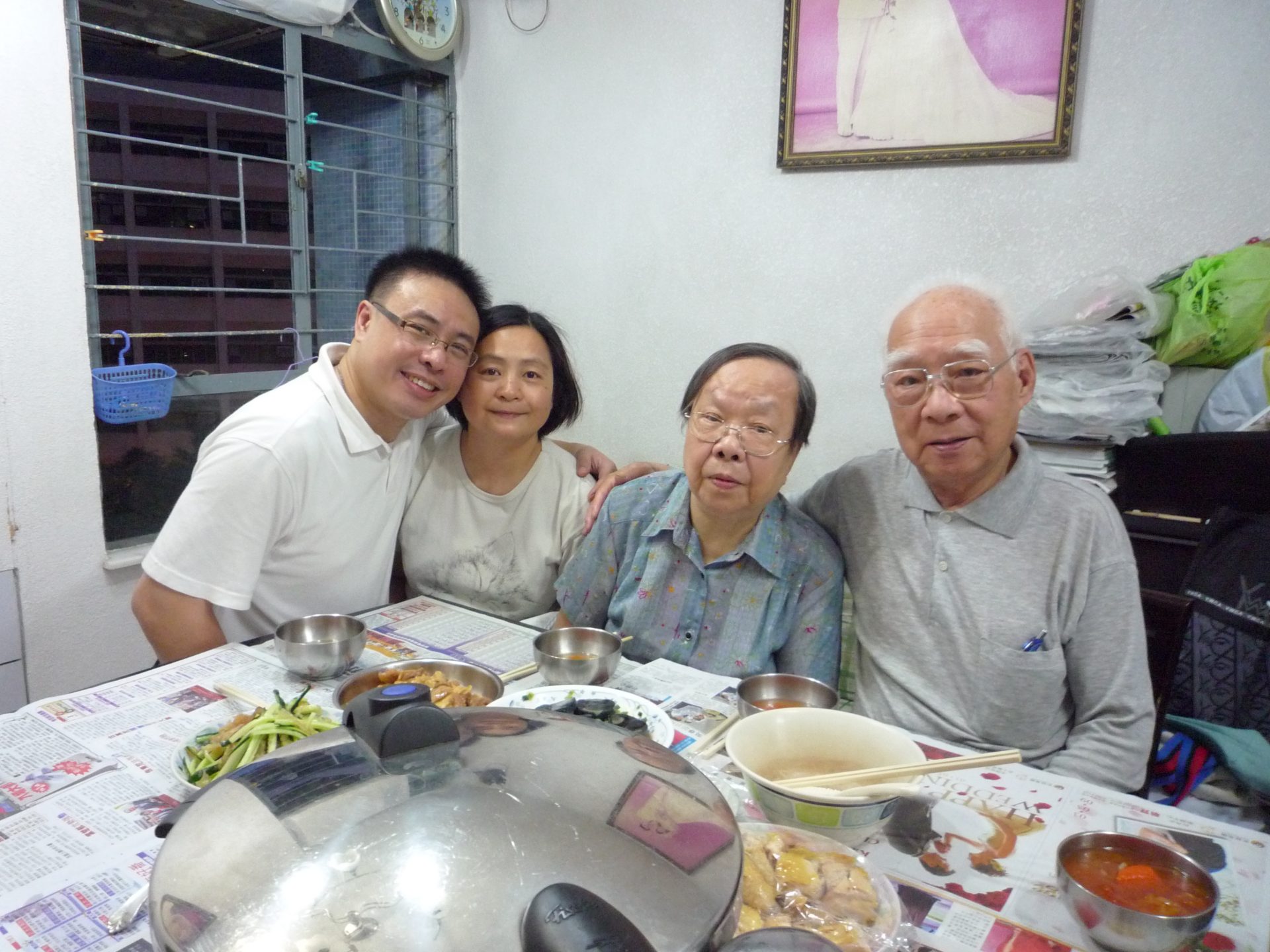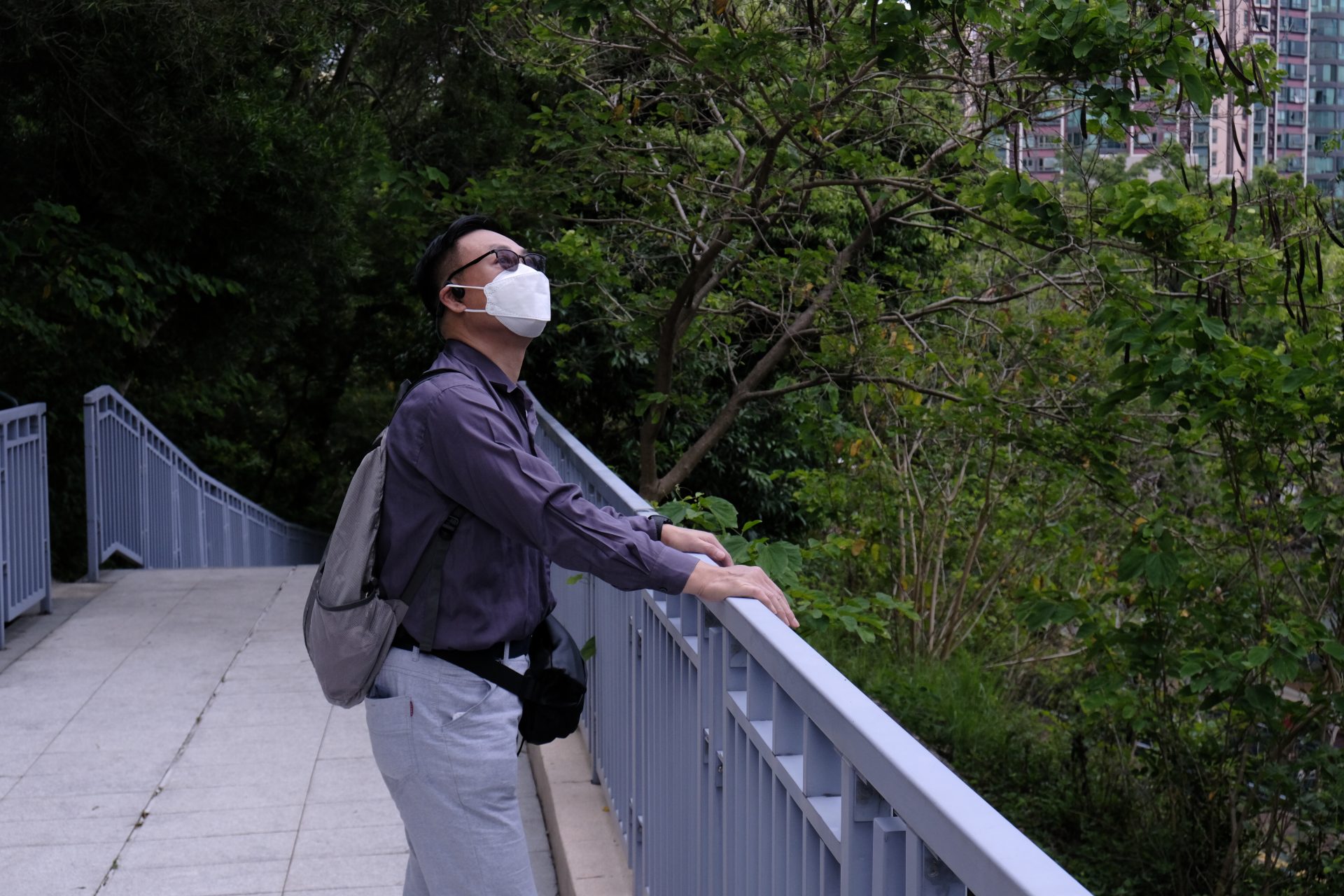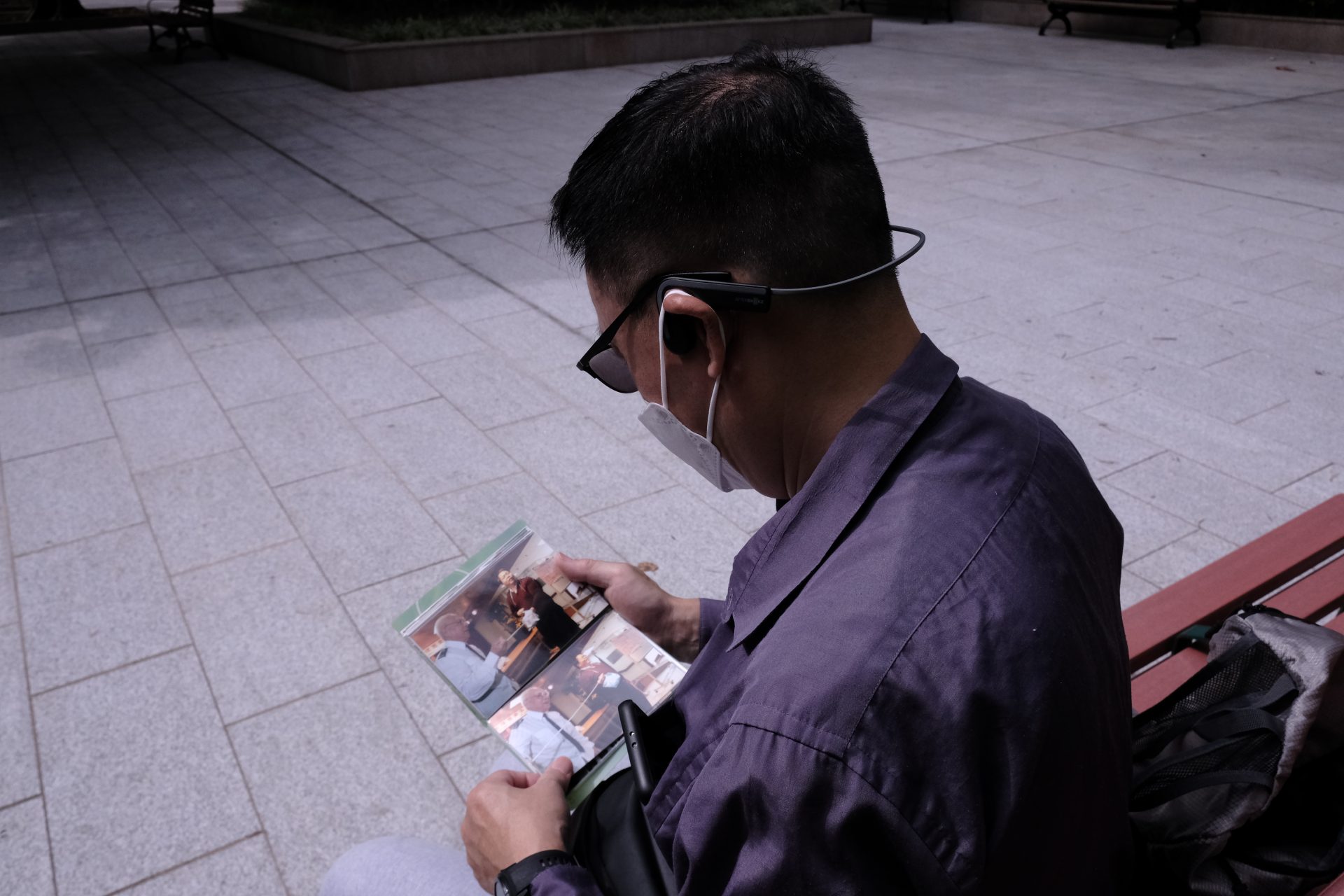“Palliative care makes a big difference. In my father’s last days, we were able to spend quality time with him. And with his wishes fulfilled, he left with no regrets.” Last year, Maso Lee lost his father Lee Foo to illness. Because of the blow he experienced at the time when his mother passed away suddenly, this time he chose to seek help from The Salvation Army “Palliative Care in Residential Care Homes for the Elderly” Project, which allowed him to better know his father and his final wishes. The experience has minimised regrets for the whole family and brought them love and memories.
Carrying on the love
Maso’s mother Ngan-yu met Lee Foo in the residential care home at their late age. They were drawn to each other and later got married as they both had gone through colostomy and had been supporting each other. Maso admitted that at first he was not too familiar with his step-father, but their relationship built as he saw how Lee Foo took care of his mother for the last decade of her life. “I did see his love for my mother, and I love him too.”
Old Mr. Lee’s health went downhill after his wife passed away. As Maso needed to be on business travel from time to time, he looked for some arrangement that could bring more help to his father. The social worker of the care home introduced the palliative care project of The Salvation Army to Maso, and he joined the project after knowing that the project also helps elderly to complete the end-of-life planning with their families, including producing memory books and helping elderly to fulfill their wishes.
Knowing how to love in a timely way
As a step-son, Maso did not know too much about the life of Lee Foo before he met his mother. He thanked for the opportunity of making a memory book together with old Mr. Lee, which allowed them to know more about each other. During the process, Maso was reminded to be mindful about the interaction with his father and was guided on how to better understand his father’s needs, and Lee Foo had more communication not only with Maso but also with other family members. “There’s no formal training on how to be children or parents. We are grateful to have the company and guidance of the project staff.”
Due to the pandemic situation, the visiting hours of the residential care home were restricted. Elderly had even less time to see their families, and every moment has become more precious than ever. Maso was very grateful to have the chance to visit his father one last time during the mid-autumn festival last year, thanks to the arrangement of the Project. On that day, Maso brought his father some durian which was his favourite and, with the help of the care home staff, the two had an online reunion with other family members. The joy of old Mr. Lee that day has touched Maso’s heart so much. To him, it was a wonderful experience and a happy memory for everyone in the family.
With no regrets at the very end
Maso also remembered the very last time he was with his father. That day, old Mr. Lee was sent to hospital urgently, and Maso rushed to the hospital when he knew the news. When his father regained consciousness, Maso showed him the wedding video clip of his daughter. Seeing the granddaughter has built her own family, Lee Foo passed away peacefully with no regret.
From time to time, Maso goes through the life memory book and photos of his father. Maso misses his late father, and he will always remember his kindness towards others, his virtues and his teaching. The love between the father and son does not vanish with the ending of life; it carries on and completes the lives of both of them.
Knowing elderly’s needs with professional tool
According to Bobby, the social worker of the Project who helped Maso, it is the goal and ideal of the Project to bring care for elderly in their last days and to minimise potential regrets of family members, allowing elderly to approach the end without unfinished business and emotional distress. The Project applies CORE-UPHOLD Model, a programme created through the cooperation with Sau Po Centre on Ageing of HKU, to estimate elderly’s needs. Old Mr. Lee was clear about the medical decision that he made, and the Project arranged related palliative care services for him according to his wishes. His condition was reviewed every month by a doctor. This saved him the trips to hospital and allowed him to stay in the care home which was more comfortable for him.
Bobby added that, the making of memory book for elderly allows elderly to look back on their lives in a more positive way, and family can gain a more vivid idea of the lives of their elderly. Also, family can have more time with each other as they compile the memory book, and together they create fond memories which they can always cherish.
| Palliative Care in Residential Care Homes for the Elderly |
|---|
| Started in 2010, with the theme “complete life and complete love”, the Project was devoted to develop a palliative care service system that can be applied in residential care homes. The system provides elderly and their families with comprehensive end-of-life services from the aspects of mind, body, social contact and spirit, and includes supporting services such as early intervention, end-of-life care and “fulfilling your wishes” services. The fourth phase of the Project has been commenced, which will focus on the continuous development of palliative care services for the local elderly. |



